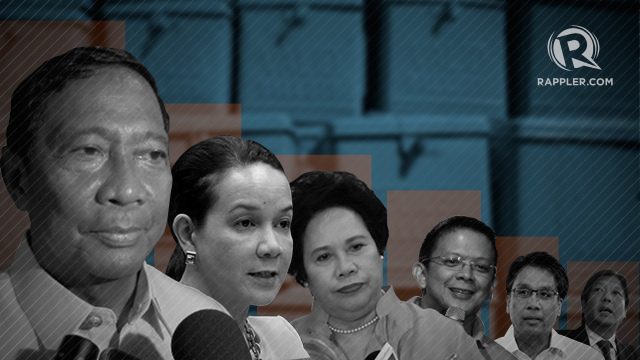SUMMARY
This is AI generated summarization, which may have errors. For context, always refer to the full article.

MANILA, Philippines – Foreign investors are assured that the economic reforms instituted by the Aquino administration would continue beyond 2016, the central bank’s deputy governor said.
The Philippines has been enjoying a long history of economic and financial reforms despite changes in political administration, wrote Bangko Sentral ng Pilipinas (BSP) Deputy Governor Diwa Guinigundo, in response to foreign investors’ sentiment expressed in a Rappler article, “Foreign investors jittery over PH 2016 presidential polls.”
In particular, Guinigundo is addressing the concern of foreign investors on whether the next president would continue the economic policies instituted by the administration of President Benigno Aquino III.
In a business forum in February, Frederic Neumann, co-head of the Hongkong and Shanghai Banking Corporation (HSBC) Asian Economic Research, said, “One question that investors increasingly ask us about the Philippines is, ‘What about next year?’” He was referring to the 2016 presidential elections.
Neumann had said that while the Philippines is well-positioned to continue its economic gains in the short-term, the transition to a new administration is a source of concern, particularly how this would impact economic reforms that are already in place.
Sustained reforms
These continued reforms contributed to steady GDP growth, Guinigundo added.
The deputy governor pointed out that the country has seen positive growth for 64 successive quarters from the first quarter of 1999 to the fourth quarter of 2014.
He explained that the positive impactof these reforms have been large economic dividends in recent times and credit rating upgrades. Moody’s, in particular, raised its Philippine rating to a notch above investment grade in December 2014, Guinigundo cited.
These reforms also played a significant role in propelling the economy toward a more balanced one, promoting inclusive growth and encouraging investment, he added.
Guinigundo said that these reforms were instituted during the terms of the last 4 presidents and have contributed to the improvement of the overall business climate and investment opportunities in the country.
While reforms are place, the central bank is also aware of the need for further reforms.
As such, Guinigundo highlighted the following structural reforms in the pipeline for 2015 to 2016, namely:
- Amendments to the BSP Charter
- Amendments to the Anti-Money Laundering Act
- Rationalization of Fiscal Incentives Law
- Rationalization of the mining fiscal regime
He added that the BSP also needs to focus on further streamlining the bureaucracy, improving both public and business governance and leveling up the infrastructure system in the Philippines.
Bridging the infrastructure gap
Guinigundo added that the sustainability of reforms and economic growth is expected even after the 2016 presidential election, considering that growth drivers now include manufacturing and services.
Capital formation has also been contributing greater impetus for a higher level of more inclusive growth, he added.
Guinigundo was also keen to point out the positive developments in the labor sector.
The employment rate has been posted at 94% in 2014, based on a labor force study done in October last year, he said.
Furthermore,BSP recognizes the need to address the infrastructure gap and aims to increase infrastructure spending through accelerating the development of public-private partnerships (PPPs) to help revive the manufacturing sector, Guinigundo said.
He stressed that the government has addressed implementation issues by streamlining and fast tracking the completion of PPPs through enacting amendments to legal frameworks.
In particular, the government amended the the Build-Operate-Transfer Law (Republic Act No. 7718) and the guidelines and procedures for joint venture agreements (effective as of May 2013), Guinigundo said.
Nine PPP projects have also been awarded as of February 2015, NAIA expressway phases II, III, IV and the LRT1 Cavite extension project.
“Based on these considerations, the markets may be assured that economic growth, as well as financial reforms will continue even beyond the 2016 elections,” Gunigundo said. – Rappler.com
Add a comment
How does this make you feel?
There are no comments yet. Add your comment to start the conversation.